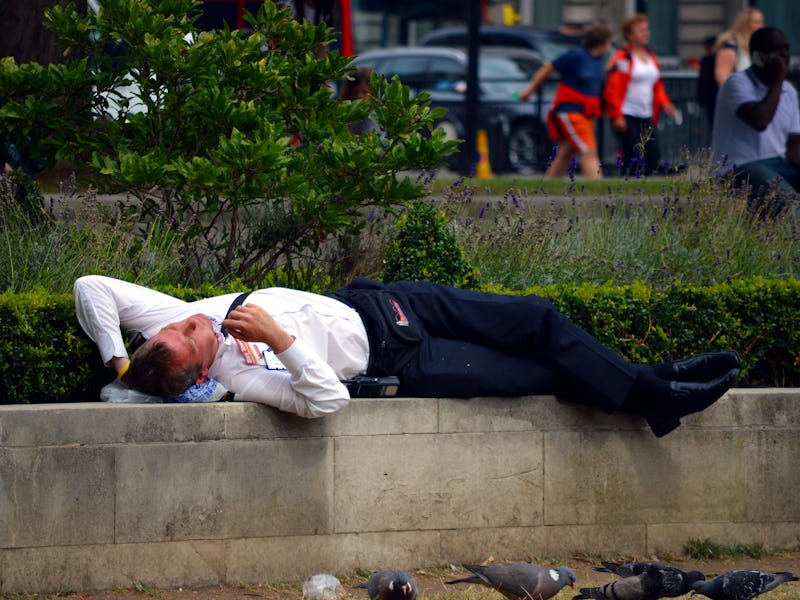The Psychology of Why Companies Should Embrace Summer Fridays
Sleeping in on Memorial Day won’t be enough to make up for lost time.

Most Americans with regular day jobs would probably say that they live for the weekend. And to those overworked and tired laborers and pencil pushers, a three-day weekend comes as a blessing from above.
But one extra day every now and then isn’t enough to revitalize people in any meaningful way. While people might get an extra hour or two of sleep and feel a little bit better, it’s likely that they’re just riding out the high of a placebo effect.
In order to really fight sleep deprivation and boost productivity, more companies may want to look into making three-day weekends a regular deal.
“I think the best way is to say we’re gonna work our butts off Monday through Thursday, but people want Friday off,” says Dr. Jarrod Spencer, a sports psychologist who started a company called Mind of the Athlete and wrote a book of the same name. In the summer, he wants his employees to spend more time at home. “After lunch on Friday, we’re done,” he says.
Spencer says that he sees a number of benefits to the “Summer Friday” model in which employers give people shortened work hours — flexible or enforced — on Fridays so they can get more rest and spend more time on self-care at home. Among other things, he says his employees are more willing to work from Monday to Thursday — during which they fall into a routine sleep schedule — than they are on Friday afternoons.
There’s no denying the psychological benefits to spending less time at work: Many advocates of long weekends argue that they should be year-round so people can enjoy more time away from work to sleep, relax, and clear their minds.
And research is on your side. One study suggests that the two-day weekend acts as more of a disruption to the circadian rhythm (the body’s internal clock that directs sleep cycles) and can impair people’s moods and mental capacities upon returning to work or school. While people can make up for some of the sleep they missed during the week — whether it be by sleeping in or afternoon naps — two days of sleeping in is enough to adjust the circadian rhythm such that they have to jolt back into their regular rhythm when they wake up early on Monday morning. When people can take Friday off to relax, they have more time to sleep, exercise, or work on their relationships. The result is a clearer mind and more productive work during the week.
“I think it increases focus,” says Spencer. “When we have more time, we spend it on ourselves and our health, or our relationships. We’re able to focus more on the task at hand at work with fewer outside mental distractions, so I think it translates to work efficiency.”
You may feel some of these benefits this Memorial Day, but it won’t be enough to pay off your sleep debt. Spencer compares the holiday to taking a sip of water while trapped in the desert: it feels great but doesn’t actually do anything for you. Rather, sleep studies suggest that it will take a long-term approach to really make up for lost sleep and improve your circadian rhythm in a less disruptive manner. Hence the three-day weekend.
But the distinction between Summer Fridays and a universal three-day weekend is deliberate. Spencer argues that if people always had a three-day weekend, their bodies and minds would just shift to the new routine and the same complaints that that they have about having to work on Friday would re-emerge on Thursday. So it’s less about getting a specific amount of time than it is about getting extra time off beyond the norm, though getting three rather than two days off on a regular basis does help smooth the transitions from weekend to weekday sleep cycle.
“There’s not a person in America who’s working efficiently and productively between one and five on Friday,” says Spencer. “We’re already checked out mentally, so we might as well check out physically as well.”